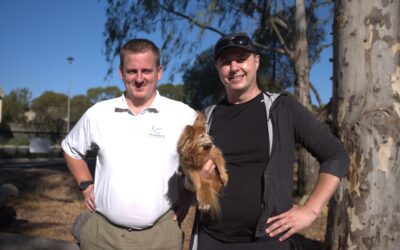Online health info
While accessing information at our fingertips has become a way of life, it could also be doing us more harm than good.
If you’re like most people, you’ve probably consulted Dr Google when you haven’t been feeling up to par.
here are our tips on how to sort fact from fiction.
Who has published the information?
The more credible the website or organisation publishing the information, the more likely it is to be accurate.
For example, if you’re looking for information relating to heart disease, head to a peak organisation such as The Heart Foundation, or a well-recognised research organisation.
Action: Search for health information from credible, reputable organisations and institutions such as national health bodies, government websites, well-known medical schools and universities.
Is the information anecdotal or based on fact?
Some health and medical information that’s published online is simply anecdotal — that is, based on an individual’s personal experience. Even if a group of people share the same views or experience, this doesn’t mean what they’re saying is true.
When searching online, particularly if you’re using it as a ‘symptom checker’, make sure that what you’re reading is evidence-based health information, and aligns with current best-practice recommendations. One way to determine if this is the case, is to cross-check to see if other reputable organisations are making similar claims.
Action: Look for information that is consistent across other similar organisations, and be aware that personal opinions are not always factual.
How up-to-date is the information?
As technology changes and research continues, it’s not uncommon for health recommendations to change as well. Be careful of health advice that’s a few years old. While it may still be current, there may be new recommendations based on more recent research.
Current research
A good indication that health information is credible and accurate is if the article refers to research. A really trustworthy site will even have links to the original research study that backs up the claim that is being made.
However, not all accurate online information refers to research, so consider if the site you’re accessing is one of the credible ones we mentioned earlier.
Action: Scan the information to see if it refers to up-to-date medical research.
Is information referenced?
Another indication that Dr Google may be accurate is the referencing of information at the bottom of the article or throughout it. References indicate that the information you’re reading has been researched. Often these references will link to the source of the information, which means you can do further reading on the topic yourself.
Action: Check if the health information you’re reading contains references from reputable sources.
Dangers of relying on online information
It may seem that having lots of health information at the end of our fingertips is a good thing. However, it’s dangerous to rely on health information found on the internet.
Reasons for this include:
- Many illnesses and diseases have similar symptoms, which means you may not diagnose yourself correctly
- Information may be outdated or inaccurate.
- Online health information does not consider past medical history, existing health challenges or current treatment or management programs you may be on
- Self-diagnosing or playing Dr Google can lead to increased levels of stress
- Self-medication or treatment may delay your visit to a doctor, meaning you don’t get a proper diagnosis at the time of your illness
- Treatment you choose may have unwanted or dangerous side effects, particularly if you’re already taking other medications
- A misdiagnosis can lead to inappropriate treatment, or delayed treatment, increasing the likelihood of serious health complications.
What about at-home treatments?
Sometimes, you may need to manage a medical condition at home. This may be the case for broken bones,healing wounds, or managing an ongoing health condition. If this is the case, make sure you consult with your health care practitioner first, and asked them the best way to manage these conditions. Before heading home, ensure that you understand their instructions — ask to get them in writing if you need to — and if you have any questions be sure to ask.
Taking matters into your own hands may end up doing more harm than good.
Final advice
Using the internet to increase your knowledge about a health condition, or to help you come up with a list of questions to ask your doctor can be useful.
However, it’s no substitute for one-on-one, personalised health care advice from your trusted medical professional. So for all your healthcare needs, be sure to consult a professional health care practitioner, instead of turning to Dr Google.
Please note: The information supplied is general in nature. Please consult your medical practitioner for individual advice.
This article is sponsored by Independence Australia, a social enterprise that provides choices for people living with a disability or other personal need, enabling them to regain and retain their independence within a supportive community.
If you would like to support the valuable work we do, you can help us to provide choice for people living with a disability or other personal need by Shopping online with us or Making a donation.
More health advice
View our wide range of health advice, tips and recommendations by visiting our health articles or checking out our top health articles below.
Philomena’s European Adventure
Philomena has Cerebral Palsy which means she can walk, feel and move, but she spends most of her time in a manual wheelchair. Alongside her support worker Nadia, Philomena recently embarked on an unforgettable European adventure.
Cory’s Story
Meet CoryTo meet Cory now, you see a young man with confidence, an eagerness to pursue his goals, and someone who is living life independently, where disability is part of who he is – not what he is. However, this hasn't always been the case for Cory, living with an...
Inclusion in Education
Inclusion in Education by Chantel Bongiovanni. Starting out school, most kids are bright-eyed, nervous, and excited. There can be an apprehension of whether school will go well. When it’s a student with disability, those apprehensions might be slightly...



